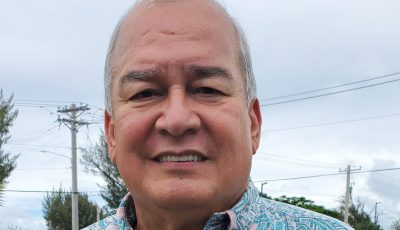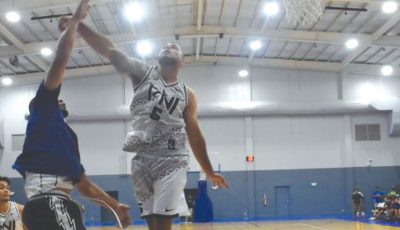‘Most of NMI’s COVID-related deaths were unvaxxed or partially vaxxed’
Not including the CNMI’s 21st fatality, the average age of the CNMI’s 20 COVID-19-related deaths is 67. By vaccination status, 14 were unvaccinated or partially vaccinated while the remaining six were fully vaccinated. Of the six who were fully vaccinated, only one had received a booster shot.
Also, all 20 individuals who have died had other chronic health conditions and most of the individuals were diagnosed too late to receive monoclonal antibody treatment, she said.
These were all learned during a virtual news briefing on Jan. 14, which took place prior to the CNMI logging its 21st COVID-19-related death, which was confirmed by CHCC and the Governor’s COVID-19 Task Force the night of Jan. 14.
Commonwealth Healthcare Corp. chief executive officer Esther L. Muña said at the briefing that the average age of the 20 COVID-19-related deaths in the CNMI was 67. By comparison, the average age of those in the CNMI who have tested positive for COVID-19 is 30.
Of the 20, 14 had either never received a COVID-19 vaccine or had only received one dose of a COVID-19 vaccine. The remaining six were fully vaccinated, having received two doses of a COVID-19 vaccine.
Most of the six who were fully vaccinated received their two doses in early 2021, and “were not up to date with their vaccinations,” said Muña. Only one of the six had received a booster shot.
Of the 95 individuals who were hospitalized as a result of COVID-19 since Dec. 1, 2021, 55 were unvaccinated or partially vaccinated. On that note, Muña asked all who are experiencing COVID-19 symptoms to seek care or get tested for COVID-19 early, as you may be eligible to receive MAB treatment or other treatments given soon after infection.
Stephanie Kern-Allely, regional communicable disease epidemiologist for the Pacific Island Health Officers Association, who has returned to the CNMI to continue to provide epidemiology support and work closely with CHCC, said that, like the CNMI’s vaccination rate, the CNMI’s booster rate, “is much higher than in a lot of areas in the world.” If you are 12 years and older and eligible for one, Kern-Allely advises you to receive a booster shot.
As of Jan. 14, Kern-Allely said that about 40% of the CNMI’s eligible population who had received second doses of a COVID-19 vaccine have already received their booster shots. Pointing to waning immunity, she encouraged the roughly remaining 60% to get their booster shots.
“We have a lot of folks that are still eligible. …We know that our immunity does wane over time after those two shots, and because of our early, strong vaccination [efforts], a lot of folks are eligible now. I really want to encourage those booster shots [and] also remind folks that the eligibility has now increased,” said Kern-Allely.
She also urged symptomatic individuals to mask up, stay home, and avail of the CNMI’s increased COVID-19 testing capacity.
The Centers for Disease Control and Prevention approved on Jan. 5 expanding the eligibility of booster doses to 12 to 17 year olds. CDC now recommends that individuals aged 12 to 17 years old receive their booster shots five months after their initial Pfizer-BioNTech vaccination series.




























